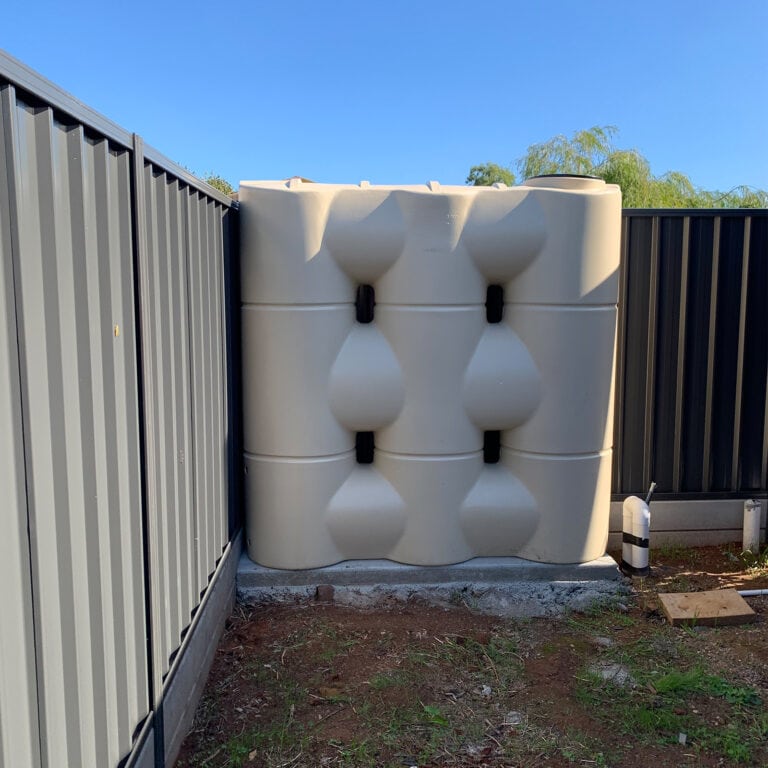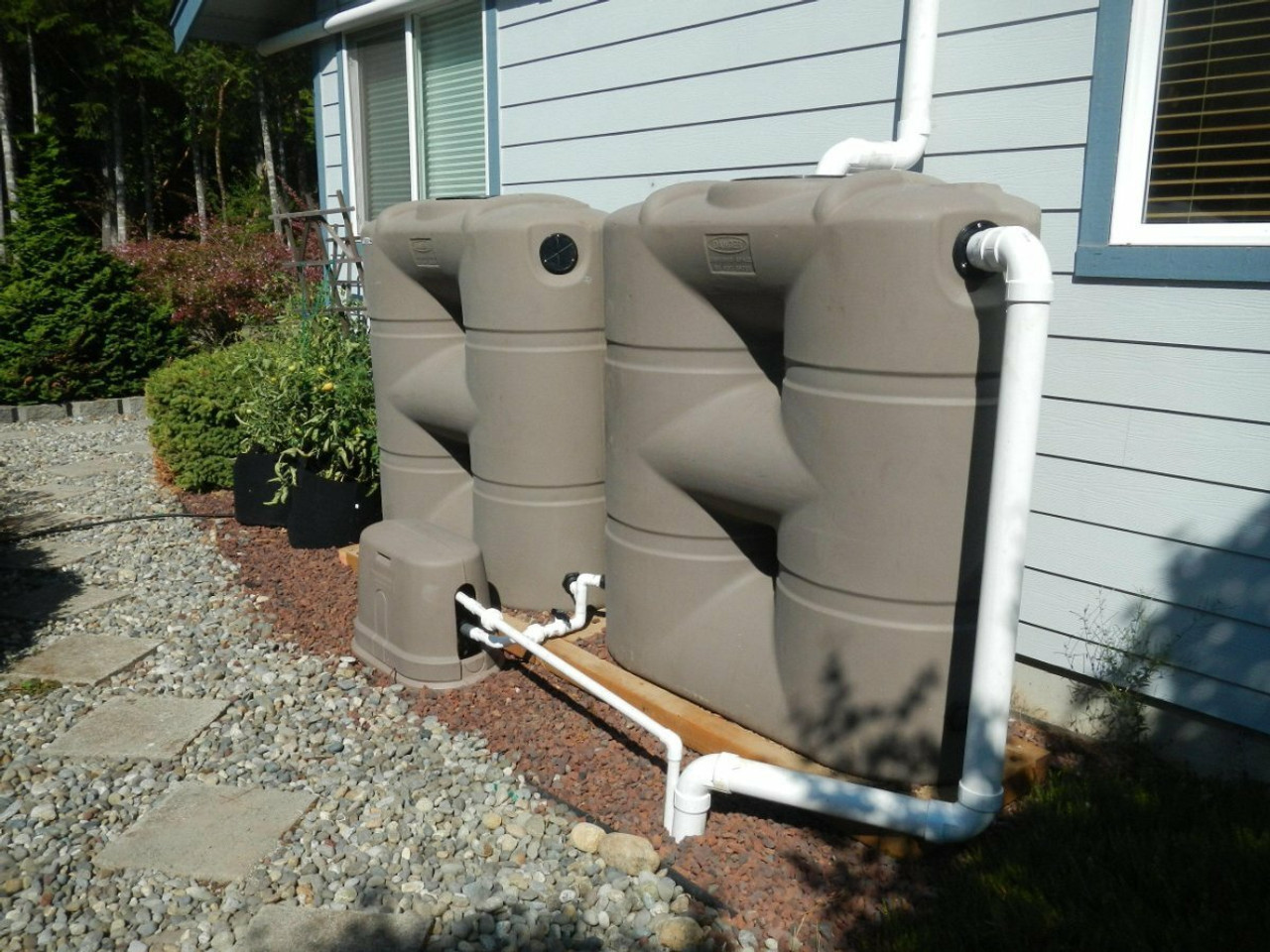Checking Out the Different Usages of Rainwater Storage Tanks for Residential and Commercial Residences
As the global emphasis on sustainable living techniques continues to intensify, the usage of rain tanks in both residential and industrial settings has emerged as an important solution. These containers supply a reservoir for rainwater harvesting, presenting a myriad of possible applications that prolong much past simple storage space. From watering to commode flushing and landscaping, the versatility of rain containers is large. Their assimilation into commercial properties opens up a world of opportunities for eco aware services. The multifaceted uses rainwater tanks present an engaging situation for their fostering, not just as a practical water-saving procedure yet likewise as a testimony to accountable source management.
Advantages of Using Rainwater Storage Tanks
Making use of rainwater containers offers countless benefits for both households and neighborhoods in regards to water conservation and sustainability. One of the key benefits of utilizing rainwater containers is the considerable reduction in dependence on mains water supply - Slimline water tanks. By catching and saving rainwater for later use, individuals and areas can decrease their need for treated water, eventually reducing the concern on water treatment centers and lowering power intake connected with water transportation and treatment
Moreover, rain gathering with containers offers a trustworthy alternate water resource throughout times of water restrictions or lacks. This stored rainwater can be utilized for different non-potable functions such as irrigation, purging commodes, and washing garments, reducing the pressure on traditional water resources. Furthermore, using rain containers can result in cost savings for both homes and neighborhoods by decreasing water expenses and lowering the requirement for expensive framework expansions to satisfy growing water needs.
Essentially, the use of rainwater containers supplies a sustainable and environmentally friendly method to water management, benefiting both individual users and the more comprehensive neighborhood in terms of water preservation, cost-efficiency, and resilience.
Rain Tank Usage in Irrigation
Offered the benefits of rainwater tanks in preserving water resources and minimizing dependence on keys water, a substantial application depends on utilizing stored rain for watering functions - Slimline water tanks. Rain harvesting systems can successfully gather and save rainwater, giving a lasting water source for watering gardens, grass, and agricultural areas. By utilizing rain for watering, property owners can minimize their dependancy on cured water resources, causing set you back savings and environmental advantages

One of the key advantages of utilizing rainwater for irrigation is its purity. Rain is naturally soft and devoid of the chemicals and ingredients typically located in mains water, making it suitable for beneficial plants without the danger of harmful impacts. In addition, rainwater goes to ambient temperature level, which can benefit plant development by preventing temperature shocks that can accompany cool mains water.
Rainwater Containers for Commode Flushing

Applying rainwater containers for commode flushing is a cost-efficient and eco-friendly method that can be conveniently integrated right into both residential and business homes. The kept rain can be made use of to purge toilets by linking the storage tank to the existing plumbing system. This easy yet effective option can significantly decrease water consumption in a structure, particularly in areas where water scarcity is an issue.

Integrating Rain Containers in Landscape Design
These tanks can capture and keep rainwater overflow from roofing systems, which can Discover More Here after that be made use of for watering yards, lawns, and plants. By making use of rainwater for watering functions, residential property owners can lower their reliance on municipal water sources, leading to cost savings and conservation of valuable water resources.
Along with providing a lasting water source for landscaping requirements, rainwater tanks can additionally aid in taking care of stormwater drainage. By recording rainwater that would certainly otherwise stream into storm drains, these tanks can mitigate erosion, decrease flooding threats, and prevent pollution of all-natural water bodies. Integrating rain tanks in landscaping can add to the overall visual appeal of the residential or commercial property, showcasing a commitment to ecological stewardship.
Industrial Applications of Rainwater Containers
Making use of rain tanks in commercial setups provides a lasting find out here now service for water monitoring and conservation, profiting organizations and the environment alike. One essential business usage is for irrigation functions, where harvested rainwater can be used to water landscape design, gardens, and agricultural areas bordering commercial properties.
Additionally, rain accumulated in tanks can be treated and made use of for non-potable objectives within business residential properties, such as flushing commodes, cleaning, and cooling systems. On the whole, the incorporation of rain tanks in business setups offers a functional and ecologically responsible strategy to water management.
Verdict
Finally, rain storage tanks supply various benefits for both residential and business buildings. From irrigation to toilet flushing and landscaping, making use of rainwater containers can assist save water resources and minimize water costs. In addition, incorporating rainwater storage tanks in industrial settings can bring about substantial cost savings and environmental advantages. Overall, the flexibility and sustainability of rainwater containers make them a useful financial investment for any type of homeowner aiming to raise water performance.
Comments on “High-Quality Slimline Water Tanks: Reliable and Space-Efficient Solutions”